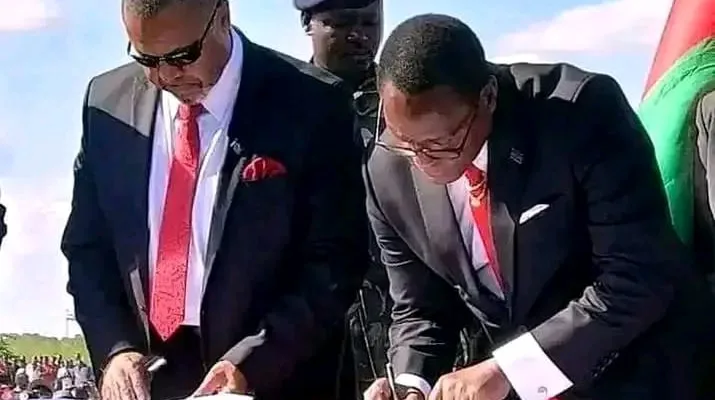
The coalition between the United Transformation Movement (UTM) and the Malawi Congress Party (MCP) was heralded as a pivotal moment in Malawi’s political landscape, promising change and progress.
However, as events unfolded, the alliance revealed deep-seated tensions and power struggles that have reshaped perceptions of governance and leadership in the country.
From its inception, the MCP asserted its dominance within the alliance, positioning itself as the leading force.
This assertion of superiority was palpable in the distribution of cabinet portfolios, where MCP secured a majority share, leaving UTM marginalized with only a handful of positions. This disparity set the stage for subsequent conflicts and challenges within the coalition.
Initially, the collaboration between UTM’s Saulos Chilima and MCP’s Lazarus Chakwera appeared promising. They worked together harmoniously, projecting unity and shared goals for Malawi’s development.
However, as time progressed, cracks began to appear in their relationship. I suggest that Chilima may have felt deceived or manipulated by MCP, particularly in facilitating their ascent to power. This perceived betrayal soured the once-promising partnership.
The arrest of Chilima, according to my analysis, was not merely a legal matter but a calculated political move. This manoeuvring underscored internal power struggles within the coalition, with MCP potentially using legal avenues to weaken Chilima’s influence and consolidate their position.
Moreover, legal proceedings implicating Chakwera and his cabinet members were abruptly halted, raising suspicions of political interference in judicial processes.
My critical reflection on Chilima’s decisions throughout the alliance. My argument is that agreeing to ally with MCP, despite foreknowledge of its internal dynamics and power dynamics, was a fundamental error.
Furthermore, delaying his withdrawal from the Tonse Alliance, despite recognizing growing discord, is portrayed as a strategic misstep that undermined Chilima’s credibility and political acumen.
In conclusion, my assessment of the UTM-MCP alliance serves as a cautionary tale in coalition politics. It highlights the complexities and pitfalls of political partnerships, emphasizing the importance of transparency, mutual respect, and strategic foresight in navigating such alliances.
The alliance’s tumultuous journey offers valuable lessons for Malawi’s political leaders and citizens alike, underscoring the need for vigilant oversight and accountability in pursuit of national interests.
My article provides a penetrating analysis of the UTM-MCP alliance, shedding light on its internal dynamics, challenges, and implications for Malawi’s political landscape.
It invites reflection on the intricacies of coalition governance and the imperative of principled leadership in fostering sustainable development and democratic progress.














